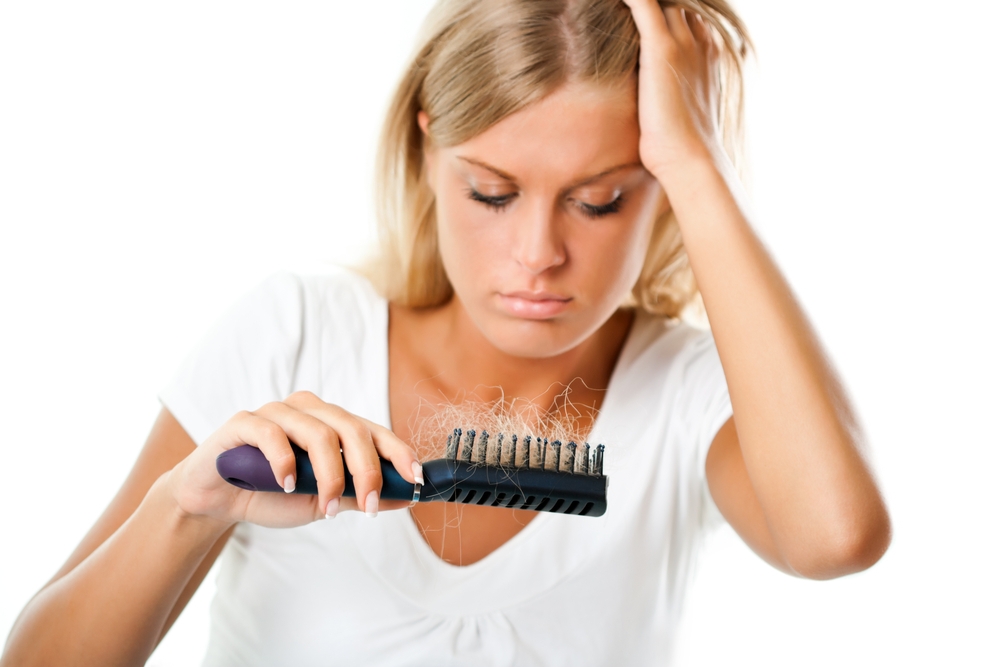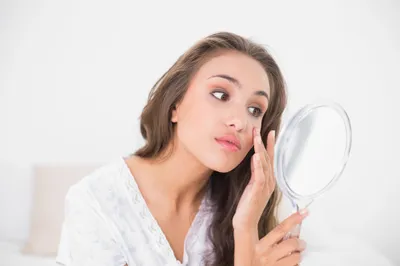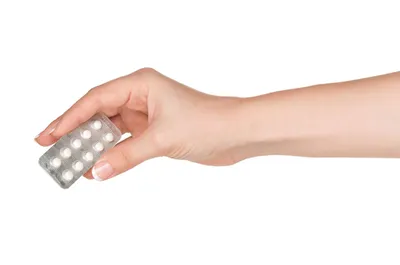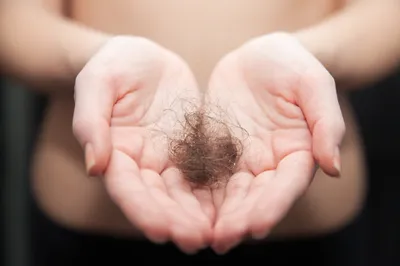Unwanted body hair can be embarrassing, but medically speaking, losing or growing body hair in unwanted places can also indicate an underlying health issue.
Learn what these body hair signifiers say about your health…
1. Hormonal Imbalance
Male hormones (i.e., testosterone and DHEAS, or dehydroepiandrosterone, which is androstenolone or prasterone) exist in both males and females in varying amounts, according to endocrinologists from the University of Colorado’s Medical Center, in Denver, Colorado. For instance, during menopause—as estrogen levels decrease and testosterone increases, women can start to see hair thinning (or male-pattern type baldness) on their heads and coarse, thick hairs sprouting up on their faces, chins, and necks. This type of hair loss and growth is normal.
However, if male hormone levels shift suddenly (i.e., due to an ovarian or adrenal tumor releasing male hormones) a condition known as hirsutism (unwanted male-pattern hair growth in females) can result, causing hair growth on the upper chest, above the belly button, on the upper back, and around the nipples. A blood test can determine a shifting hormone profile and the potential presence of a tumor.
2. Drug Dependence
According to research from WebMD, several prescription and recreational drugs can result in hair loss in both men and women—including antidepressants or mood stabilizers, acne medications, immunosuppressant medications, blood thinners, steroids, cholesterol-lowering medication, weight loss drugs, oral contraceptives, thyroid medications, chemotherapy drugs, and more.
Of course the severity of hair loss depends on the type and dosage of drugs you’re taking, in addition to personal drug sensitivity. Drug-induced hair loss comes in two forms—Telogen Effluvium, which occurs within 4-months of taking the drug and results in resting hair follicles and early hair loss—and Anagen effluvium, which occurs within weeks of taking a new medication (i.e., chemotherapy) and causes hair to shed during the anagen, or active growth phase of the hair cycle.
3. Hyperthyroidism
Unexplained hair loss can be a symptom of hypothyroidism in male and female patients, according to the British Thyroid Foundation. Hair loss connected to thyroid disease typically results several months after the onset of hyperthyroidism. And in many cases, the hair loss can be mistakenly blamed on thyroid medication, which inevitably leads to even greater hair loss.
Thyroid-related hair loss doesn’t occur in waves (i.e., seasonally), instead it occurs in noticeable hair loss on all areas of the body—such as the entire scalp or eyebrows. Fortunately, hair typically grows back after several months of successful treatment.
4. Iron Deficiency
If your body is iron deficient, very noticeable hair thinning and hair loss can take place, affecting both the hair on your head and body. Dr. Jacques Moritz, the Director of Gynecology at Mount Sinai St. Luke’s Roosevelt, in New York City, claims that once iron deficiency progresses into full-blown anemia, it can result in hair loss in vegetarians, vegans, and women with heavy periods.
Anemia occurs when the body redirects oxygen from hair follicles to vital organs—as a result hair sheds due to the body’s survival instinct. To prevent iron deficiency, the body requires heme iron, which comes from meat, poultry and fish. But also non-heme iron, which stems from plants or a mixture of iron- and vitamin-C-rich vegetables—such as berries, broccoli, and bell peppers, berries and broccoli to increase iron absorption.
5. Autoimmune Issues
Alopecia is a rare immune condition that attacks the body’s hair follicles; causing hair loss in strange, circular patterns (alopecia areata), total bodily hair loss—including the scalp, eyelashes, and eyebrows (alopecia universalis), or total scalp hair loss (alopecia totalis).
According to research on WebMD, all types of alopecia affect both genders equally, with alopecia areata typically striking those under the age of 20-years-old. Alopecia is usually treated with systemic steroids, which can help hair regrowth.
6. Genetics and Ethnicity
Genetics and ethnicity are perhaps the strongest determining factors as how much body hair you have and where it grows—for example, on the scalp, chest, back, arms, legs, eyebrows, eyelashes, pubic area, and chin, according to Dr. Margaret E. Wierman, Professor of Medicine at the University of Colorado.
Dr. Wierman claims that while individuals of Asian descent have the lowest amount of terminal hair (or dark, long, coarse hairs)—individuals of Middle Eastern and Hispanic ethnicity typically have the most hair growth.









